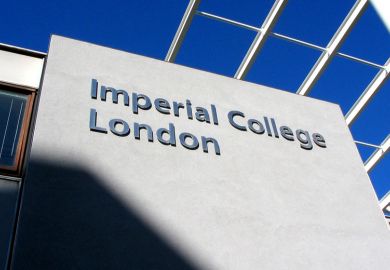点击阅读英文全文
英国前大学部长克里斯·斯基德莫尔(Chris Skidmore)日前表示,引入为期4年的毕业生工作签证(Post-Study Work visa,PSW),甚至为外国学生提供获得英国国籍的途径,都有助于应对下一学年可预见的国际招生大幅度下降。
由于国际学生在新冠病毒疫情期间无法出国,英国各大学已准备承受数十亿英镑的资金损失,教育慈善机构“英国大学”(Universities UK)呼吁政府给予学生签证“更大的灵活性”,作为该行业所寻求的20亿英镑救助计划的一部分。
斯基德莫尔先生的这番讲话来自近日由泰晤士高等教育主办的一场在线研讨活动,其他两位嘉宾分别为前大学部长乔·约翰逊(J. Johnson)和威利兹勋爵(Lord Willetts),共同探讨病毒大流行后全球高等教育的未来。他说,希望部长们考虑为学生签证提供“诱人的、大胆的建议”,特别是对那些攻读重点学科的学生。
去年9月,英国已经宣布恢复2年的毕业生工作签证,这是继英国前首相特蕾莎·梅(Theresa May)在担任内政大臣时取消该签证7年后的新政。
斯基德莫尔说:“我们也许可以重新考虑2年的毕业生工作签证。”他将英国的政策与加拿大和澳大利亚进行对比,而这两个国家“毕业生工作签证时间较长”。
他说:“现在或许有理由要求对此进行延长——比如在某些学科或专业,我们会希望这些学生在英国停留更长的时间。”他补充说:“我主张某些学科的毕业生工作签证延长至4年,甚至提供获得公民身份的途径。”
他补充道:“归根结底,有学生来到我们这里接受培训,并且成为各自领域的专家——如果可能的话,我们为什么不想让他们在这里度过余下的职业生涯?”
他说:“我们可以提出诱人的、大胆的提议,以显示我们确实希望将来有更多学生来这里。”该活动有1200多人在网上参加。
约翰逊先生则呼吁采取“跨政府部门的努力”,以确保其在2019年3月宣布的国际学生战略不被忽视,他说:“应给予所有需要在签证方面采取的灵活性。”在由斯基德莫尔先生所监督的计划之下,英国希望将国际学生人数从目前的46万增加到2030年的60万。
约翰逊先生表示,尽管在当前情况下该目标可能“有些无法实现”,但他认为鉴于国际教育“对英国经济系统的重要性”,考虑“什么是正确的政策措施……以确保我们朝着这一目标取得进展”是很重要的。
他说:“国会的同事们通常没有意识到,我们的经济中没有很多具有全球竞争力的部门。我们有金融业,还有一些制药公司;但高等教育确实是我们的全球优势之一,它为我们的出口做出了巨大贡献,每年约200亿英镑。”
他补充说:“我们国家的经常项目赤字很高,当我们摆脱新冠病毒危机时,这一赤字甚至会更大,因此我们可能无法承担起错误决定的后果。”
由于许多地区性和国际语言测试中心以及内政部签证中心现已关闭,约翰逊先生建议部长们将这些领域的评估权交给大学自己。
“从这一流程中撤除大量官僚机制将会是政府在这场危机中可以做的、最有帮助的事情之一。这是一个机会,让高等教育行业承担起国际学生招生过程中的不同环节,从签证签发到语言要求。”约翰逊先生补充说,只要负责任地执行,它将带来“额外益处”。
威利兹勋爵则表示,他认为值得重新考虑英国学生是否能被允许获得出国留学贷款的机会,“尤其是在这场危机导致更多国家壁垒和界限出现的情况下”。
“如果我想从特定国家或地区吸引更多学生,对他们说:‘我们也将为英国学生提供贷款,让他们去贵国学习’……这能开启更具建设性的对话。” 威利兹勋爵说。
约翰逊先生去年在短暂回归担任高等教育部长时,重新引入了毕业生工作签证。他还表示,希望新冠病毒危机将有助于“加强相对较新的共识,即国际学生为大学和整个经济带来的价值”。
“可悲的是,我们只会在事物消失时才会意识到其价值。现在有失去国际学生的危险,而在他们走后,我们一定会想念他们。”
jack.grove@timeshighereducation.com
本文由张万琪为泰晤士高等教育翻译。
观看研讨会完整视频
后记
Print headline: Chance for new visa change, new markets and new support




